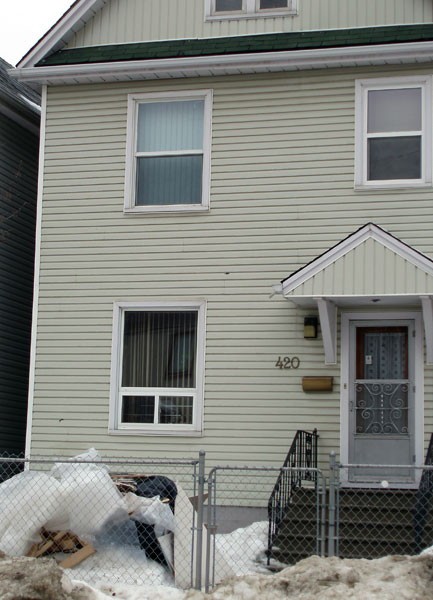Improving inner-city homes
Program fixes homes, turns around lives
A new home improvement program will give houses in Winnipeg’s inner-city a much needed facelift – while training its residents to pay it forward.
The Government of Manitoba partnered with Manitoba Hydro to renew and expand a program for retrofitting older homes in Winnipeg’s inner city.
Money will be channeled to private homeowners through the non-profit organization Building Urban Industries for Local Development (BUILD) to install insulation and low-flow shower heads and toilets.
The company also includes a training component for those looking to get into the construction labour market.
After only five weeks of insulating houses with BUILD, Brian Bear said he already feels like he has gained a lot of knowledge in the carpentry trade.
He said that he appreciates that the company’s willing to work in areas where most contractors refuse to work.
“A lot of contractors don’t want to go into these neighbourhoods,” Bear said.
“ A lot of contractors don’t want to go into these neighbourhoods.
Brian Bear, BUILD
Shaun Loney, BUILD’s executive director, said the company is working to improve houses that definitely need it.
“The North End is full of houses that were poorly insulated when they were built,” Loney said.
BUILD began in 2006 and continued to retrofit 200 inner-city homes over two years. With the increased funding, Loney expects the company will retrofit 300 homes in the next year alone.
Colin Craig, the provincial director for the Manitoba branch of the Canadian Taxpayers Federation, said that although the training program has merits, there are better ways to improve the housing stock in the inner-city that don’t involve spending public money.
“If you reduce taxes across the board and reduce barriers to doing the renovations,” there would be more investment by individuals in the neighbourhood, Craig said.
Unlike Alberta or Saskatchewan, Craig said Manitoba places a much heavier tax burden on low income earners.
Craig also suggested a broader approach may be a good idea. This would account for crime prevention to improve the perception of the neighbourhood and its house values.
This may in fact be one of the benefits of BUILD. Loney said that BUILD hires people that could be spending their time doing less productive things.
“Some are former gang members. How can you measure the value of them not being in jail or not committing crimes?”
Home owners interested in applying for BUILD can contact 204-943-5981.
Published in Volume 63, Number 20 of The Uniter (February 12, 2009)







